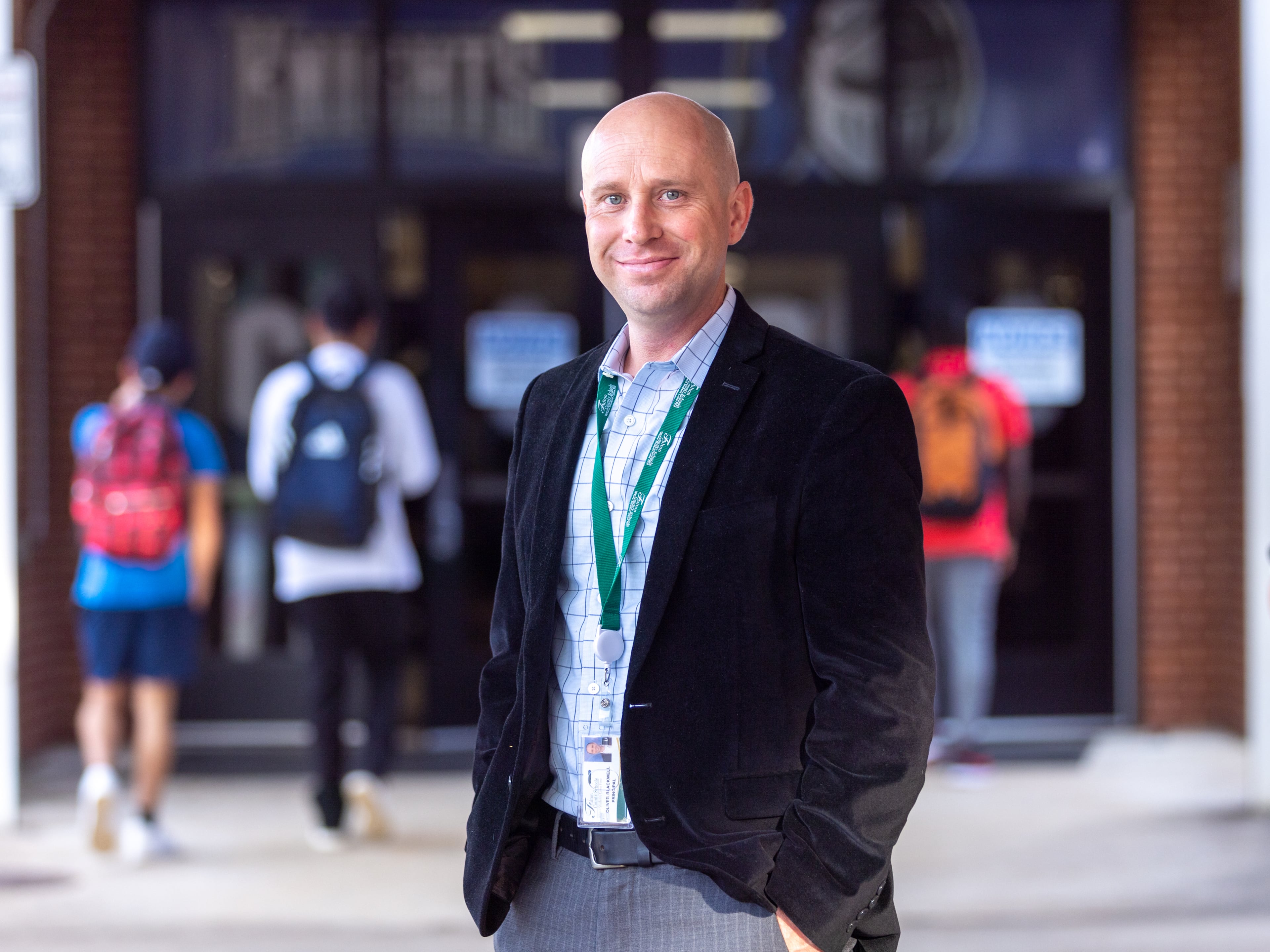A new principal takes over at Roswell’s Centennial High School





Opie Blackwell has spent his entire 17-year career in Fulton County Schools. He started out as a teacher at Alpharetta High School. He became an assistant principal at Riverwood High School in Sandy Springs. Then he moved on to become the principal at Ridgeview Charter Middle School, where he stayed for seven years. This is his first year as principal of Centennial High School in Roswell.
The Atlanta Journal-Constitution sat down with Blackwell to talk about his first days of leading the school of more than 1,700 students. The interview has been edited for length and clarity.

Q: Why move from middle school principal to high school principal?
A: I was a 110% middle school convert, but I think I always had that draw to — at some point — I wanted to go back to high school. Some of the people who have become kind of mentors to me over the years … kind of gave me a nudge and said, “(Centennial) would be a great school for you to go to.”
Q: Did you know much about Centennial before you took the job?
A: I knew a little bit about it. Some of the attractive pieces were Centennial is … a beautifully diverse school. We have huge special education populations here at the school, (the) economic spectrum goes from the top all the way down to the bottom. (We have) racial and ethnic diversity. Those were some of the things that I knew, which are very similar to the school context that I worked in before. So that was attractive. It has an IB (International Baccalaureate) program. That’s my background. So some of those things kind of made me think, “OK, this could be a great place for me to walk into.”
Q: We’ve done some reporting on Fulton’s new literacy program. Do you have a sense of how that will work at the high school level?
A: We have students at Centennial who come to us (reading) several years behind where they should be. At the high school level … we’re not working as much with some of those basic building blocks of phonics and fluency, we’re really working on reading comprehension. You may be able to read decently well a piece of literature or the text or even something in science, but you may still not be comprehending. At the high school level, it’s having enough of those trainings to know what you can do to improve reading comprehension.
Q: (Centennial) is a pretty high-achieving school. So, do you have any goals in that regard? Do you see room for improvement?
A: We’re great at challenging the kids who are accelerated and at the top. Also over time, we’ve gotten really great at doing things for kids who are behind. But some of the gap — and this is part of what Centennial needs to focus on to continue improving — can be what I call “the academic middle,” meaning, they’re middle-of-the-road kids maybe pulling B’s and C’s or just passing, but they’re not in that bottom. They’re not that group that we’re focused on (where) we’ve got to prevent them from failing. So the academic middle, I think, is a huge promise here.

Q: Do you have any concerns coming into the school year? Do you have anything that you’re worried about?
A: Grave worries, no, but I will say one of the challenges that I think is still very present, is reconnecting families and kids to school (after the pandemic). Reconnecting families to the school environment, it hasn’t bounced back in every context. And that is the case … here. I mean, we have great families, but for some of our families who might just kind of have that “on the fray” engagement, finding the right way to have them be at the school or be involved with what we’re doing is still a challenge.



